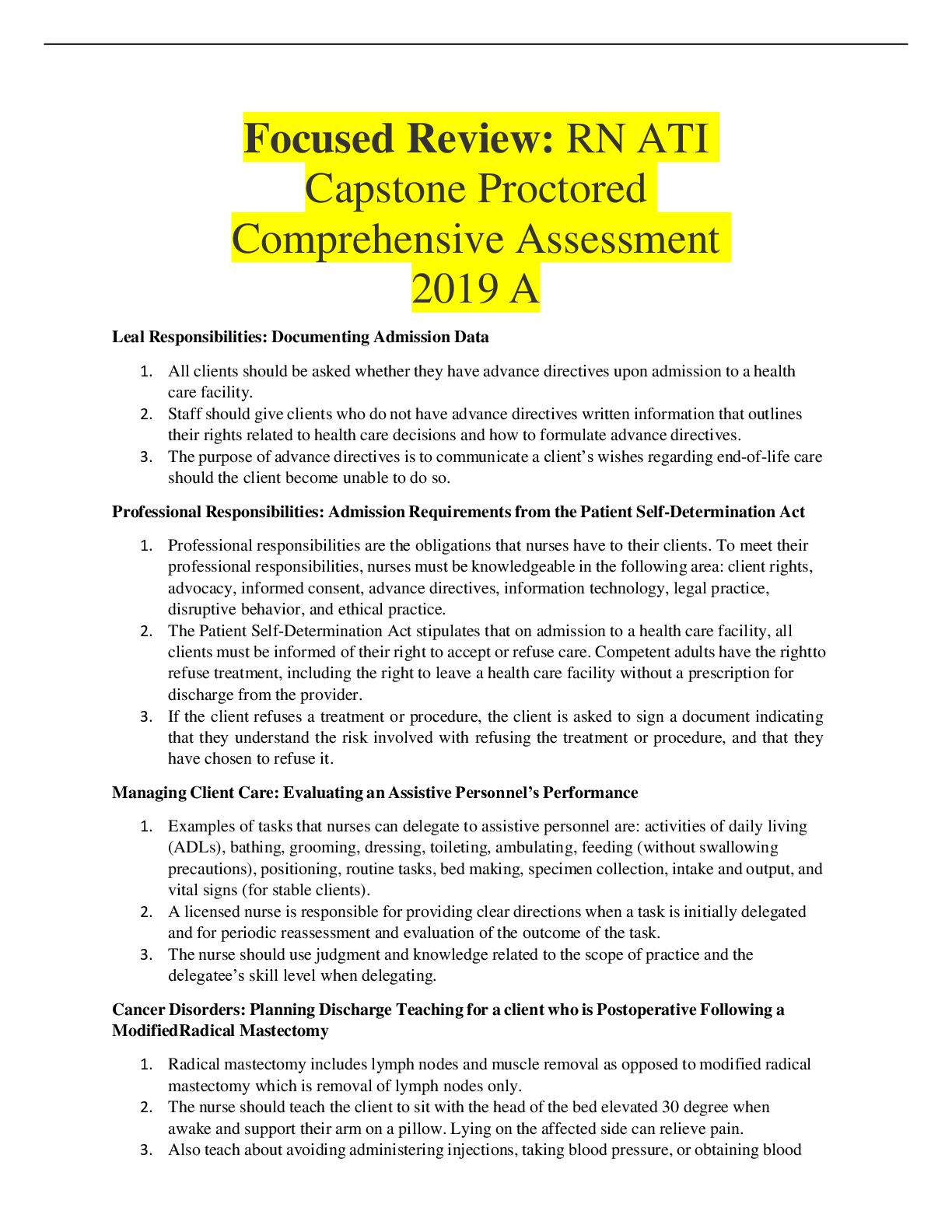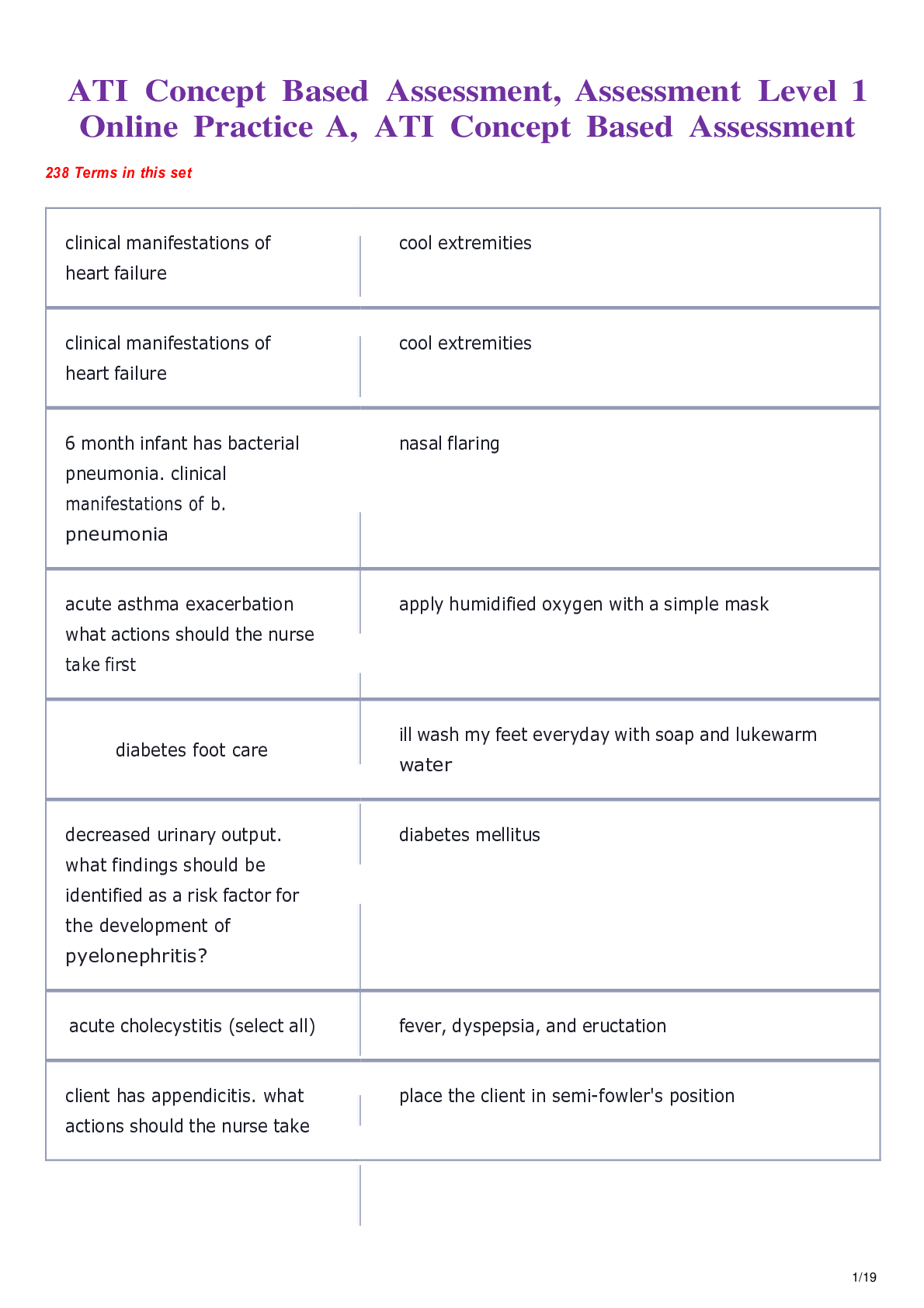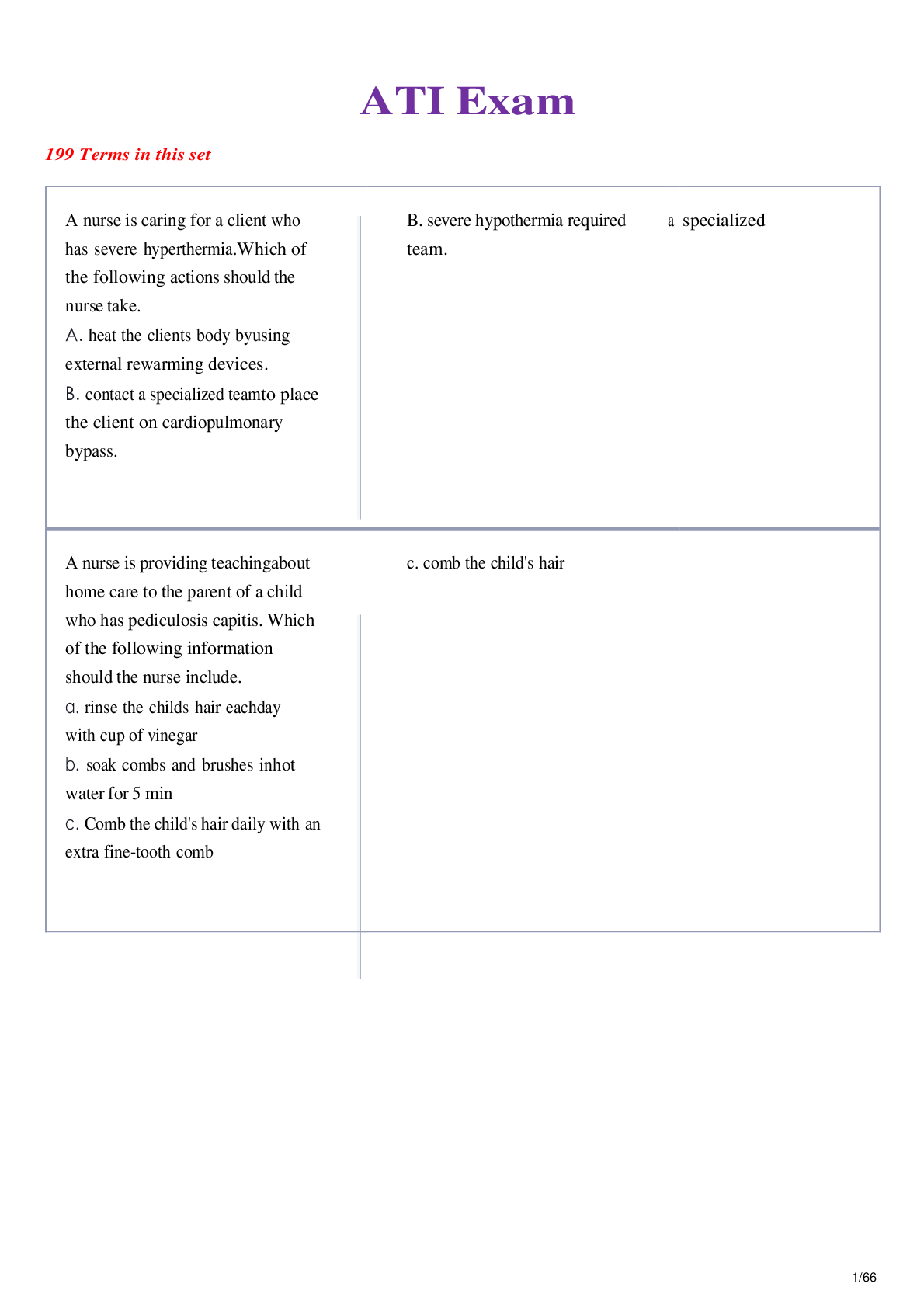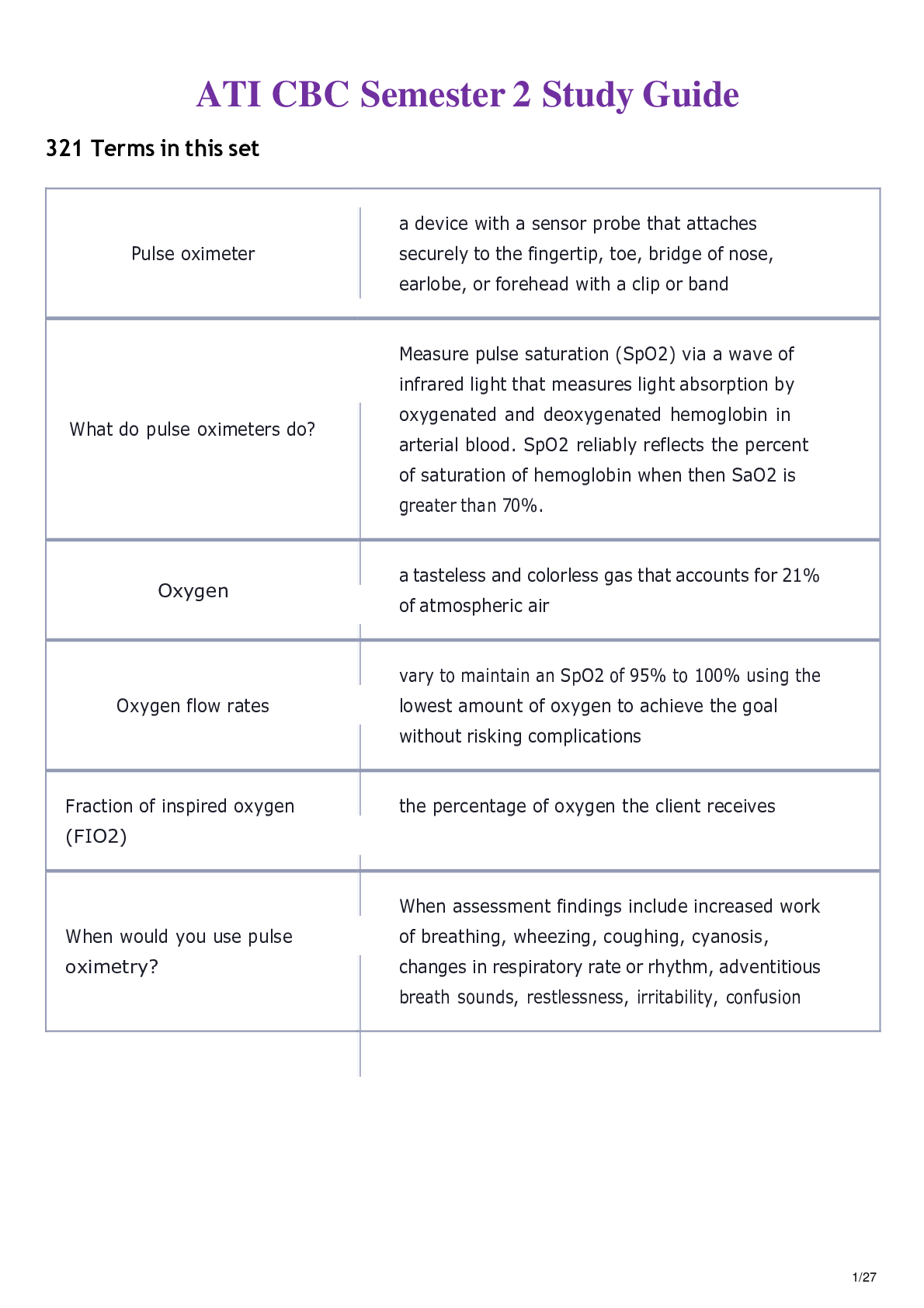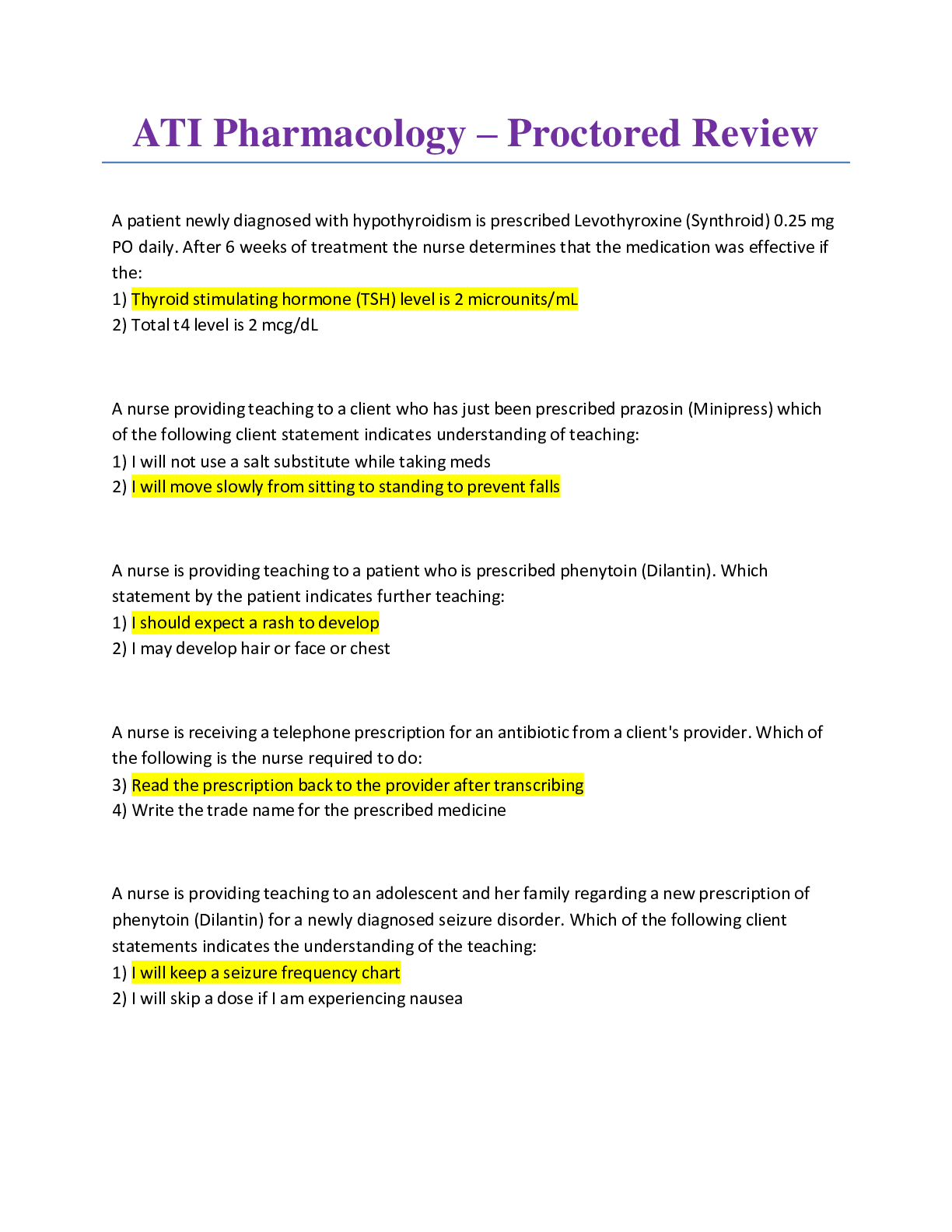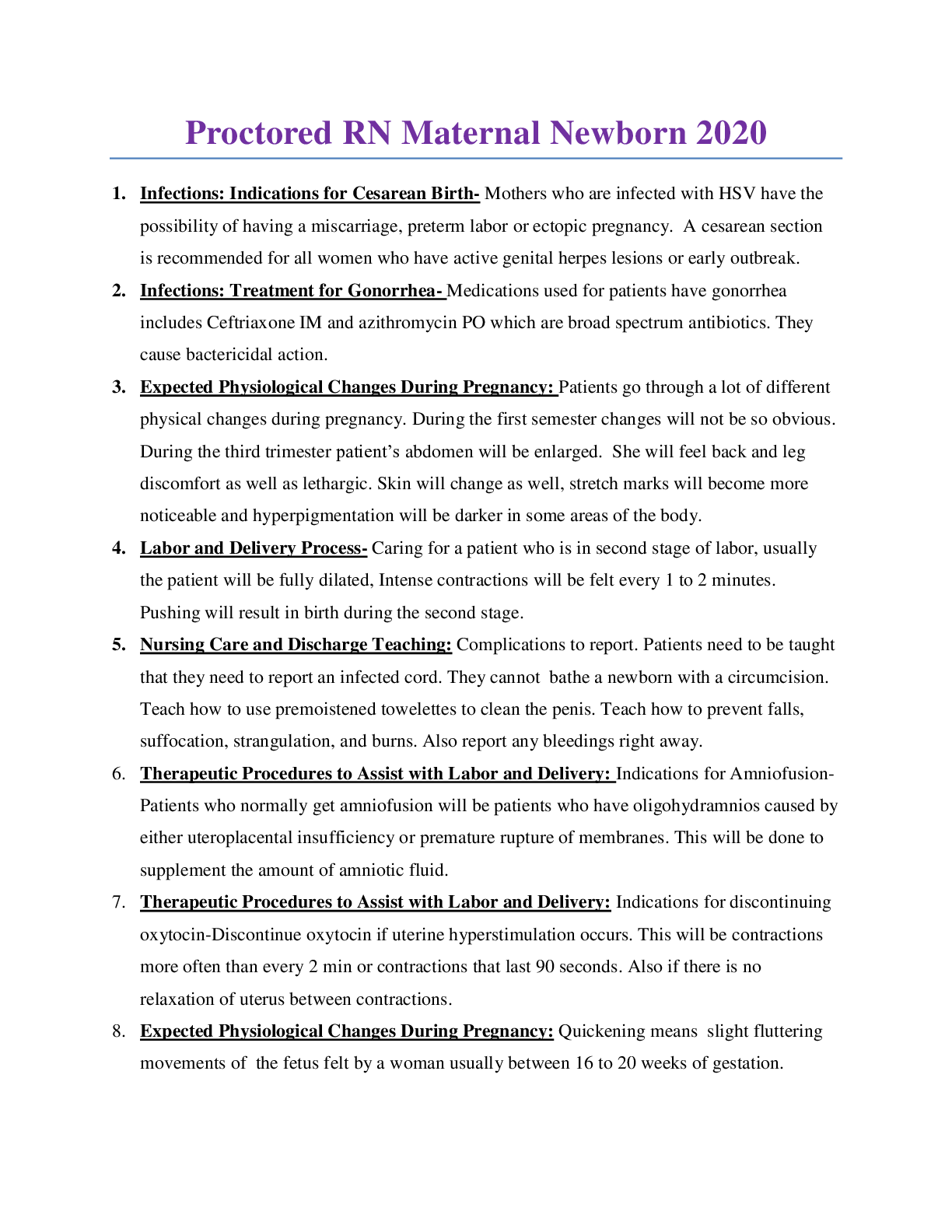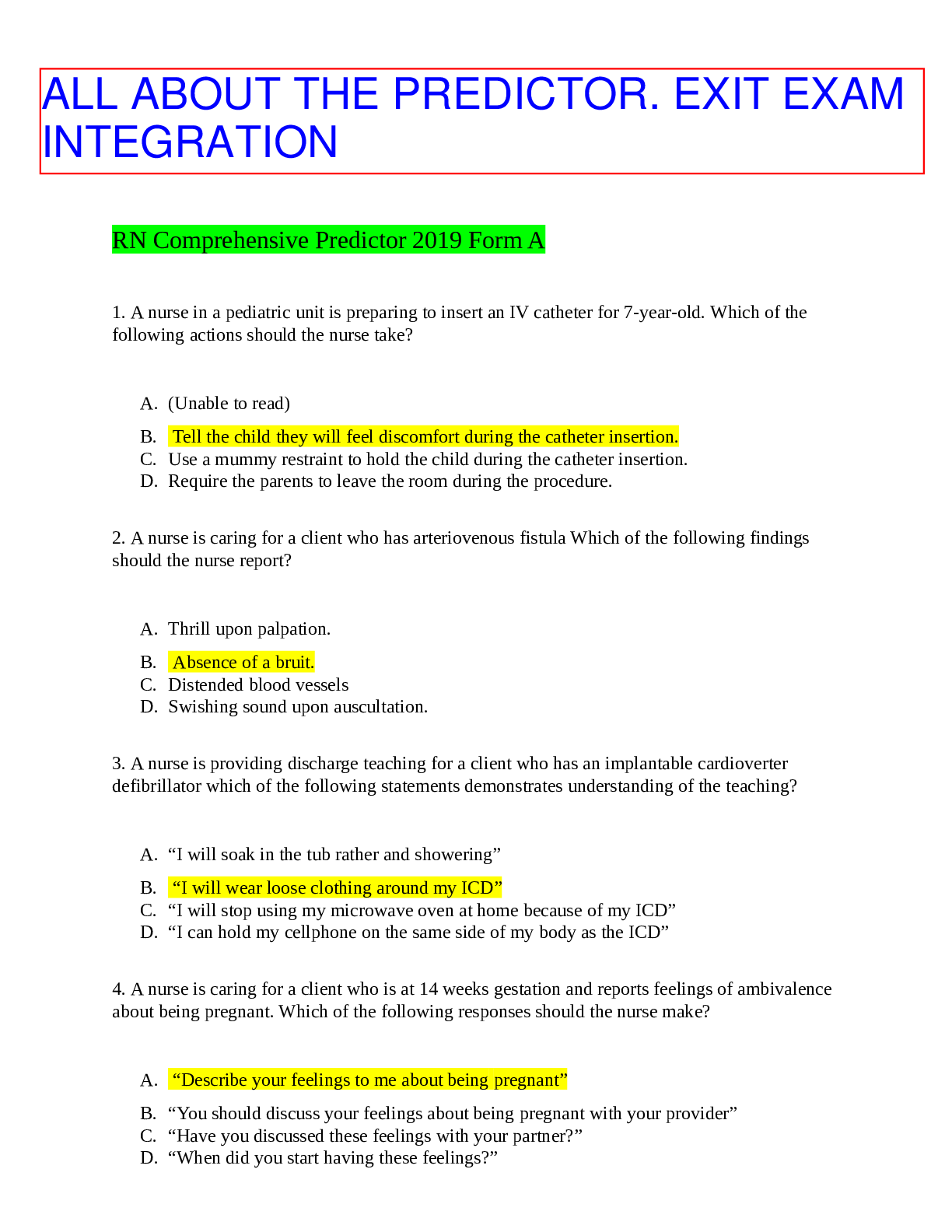*NURSING > QUESTIONS and ANSWERS > ATI Capstone Content Review: Mental Health (All)
ATI Capstone Content Review: Mental Health
Document Content and Description Below
ATI Capstone Content Review: Mental Health Mental Health tips: • All clients should have a Mental Status Exam, which includes: o Level of consciousness o Physical appearance o Behavior o Cogn... itive and intellectual abilities • The nurse conducts the MSE as part of his or her routine and ongoing assessment of the client. • Changes in Mental Status should be investigated further and the provider notified. • There are two types of mental health hospitalizations: o Voluntary commitment and involuntary or civil commitment. o Involuntary commitment is against the client’s will. • Despite that, unless proven otherwise, clients are still considered competent and have the right to refuse treatment. • Use the following communication tips when answering questions on NCLEX: • If the client is anxious or depressed use Open ended, supportive statements • If the client is suicidal use direct, yes or no questions to assess suicide risk • If the client is panicked use gentle guidance and direction • If the client is confused provide reality orientation • If the client has delusions / hallucinations / paranoia acknowledge these, but don’t reinforce • If the client has obsessive / compulsive behavior communicate AFTER the compulsive behavior • If the client has a personality or cognitive disorder be calm and matter-of-fact • Treatment for mental health illnesses and disorders can include Medications Talk behavior therapy brain stimulation • Clients undergoing care for mental health disorders may feel pressure to deny behavior or issues to appear ‘normal’. • The nurse should always carefully assess each individual to ensure optimal response to therapies. • The most common type of brain stimulation therapy is electroconvulsive therapy or ECT. • ECT is generally performed for major depressive disorders, schizophrenia, or acute manic disorders. • Most clients receive therapy three times a week for two to three weeks. • Prior to ECT, carefully screen the client for any home medication use. • Lithium, MAOIs, and all seizure threshold medications should be discontinued two weeks prior to ECT. • After therapy, reorient the client as short-term memory loss is common. • Anxiety disorders are common mental health disorders. • Generalized Anxiety Disorder • Panic Disorder • Phobias • Obsessive Compulsive Disorder • Posttraumatic stress disorder (PTSD) are all considered types of anxiety disorders. • Assess the client for • risk factors • triggers • responses. • A classic symptom of depression is • change in sleep patterns • indecisiveness • decreased concentration • change in body weight. Any client who shows these signs or symptoms should be asked if they have suicidal ideation. Teach clients to never discontinue antidepressants suddenly. • Bipolar disorders are mood disorders with periods of depression and mania. Clients have a high risk for injury during the manic phase related to decreased sleep, feelings of grandiosity, and impulsivity. Hospitalization is often required and nurses should provide for client safety. • There are several different types of abuse, including physical, sexual, or emotional. Abuse tends to be cyclic, following a pattern of tension building, battering, and honeymoon phase. When test questions appear related to abuse, look for the phase to determine the correct response. • For the aggressive or violent client, setting boundaries and limits on behavior is important. The nurse should maintain a calm approach and use short, simple sentences. More drug tips! Common Psychiatric Medications • SSRIs: Selective Serotonin Reuptake Inhibitors. o These medications include Citalopram • Celexa Fluoxetine • Prozac Sertraline • Zoloft o The client should avoid using St. John’s Wort with these medications, and should eat a healthy diet while on these medications. • TCAs: Tricyclic Antidepressants. o Amitriptyline Elavil o Anticholinergic effects and orthostatic hypotension may occur. • MAOIs: Monoamine Oxidase Inhibitors. o Phenelzine (Nardil) is an example. Hypertensive crisis may occur with tyramine food ingestion • care must be taken to avoid these substances. • Educate the client to avoid all medications until discussed with provider. • Atypical antidepressants. o Bupropion (Wellbutrin) is the most common example. • Appetite suppression is a common side-effect. • Headache and dry mouth may be severe and client should notify the provider if this occurs. • Atypical antidepressants should not be used with clients with seizure disorders. • Serotonin Norepinephrine Reuptake Inhibitors. o Common SNRIs include Venlafaxine • Effexor Duloxetine • Cymbalta o Adverse effects may include Nausea weight gain Sexual dysfunction. Antagonists [Show More]
Last updated: 2 years ago
Preview 1 out of 8 pages

Buy this document to get the full access instantly
Instant Download Access after purchase
Buy NowInstant download
We Accept:

Reviews( 0 )
$9.00
Can't find what you want? Try our AI powered Search
Document information
Connected school, study & course
About the document
Uploaded On
Jan 13, 2021
Number of pages
8
Written in
Additional information
This document has been written for:
Uploaded
Jan 13, 2021
Downloads
0
Views
176


